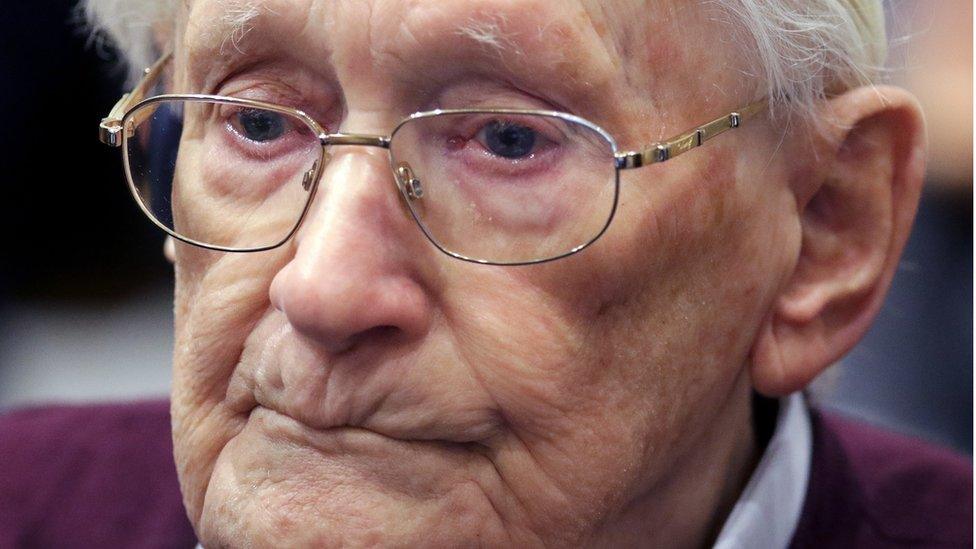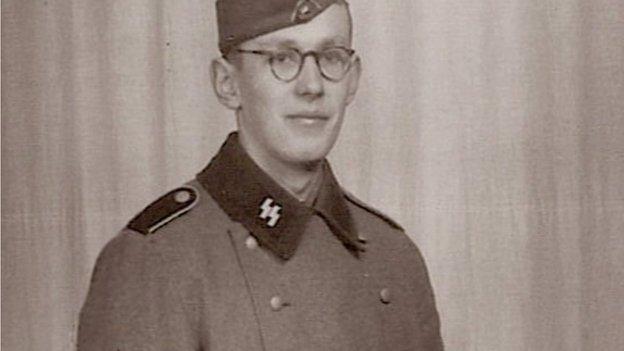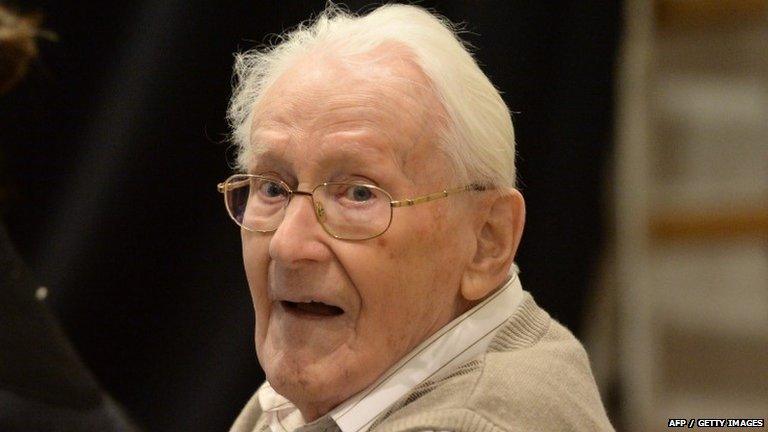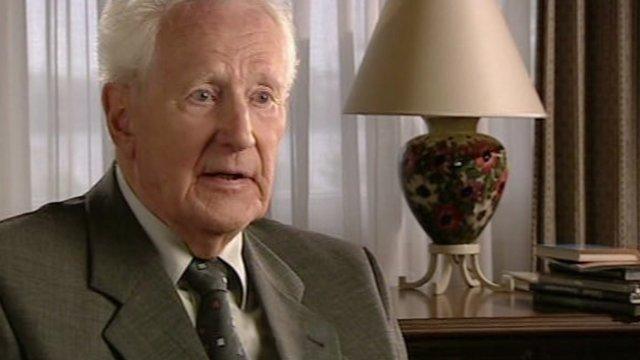Oskar Groening Auschwitz conviction marks 'dramatic change'
- Published

Oskar Groening challenged his four-year sentence
A German federal court has upheld the conviction of Auschwitz death camp guard Oskar Groening, who admitted witnessing murders but not taking part.
The verdict, external overturns a 1969 ruling that being a staff member at Auschwitz was not enough to secure a conviction.
Nazi hunter Efraim Zuroff said it was the biggest change in years.
Groening, 95, who was known as "the bookkeeper of Auschwitz", had appealed against a four-year jail term handed down for being accessory to murder.
"This is a very dramatic and significant change in German prosecution policy," Mr Zuroff, the head of the Simon Wiesenthal Center in Israel, told the BBC.
Germany's Federal Court of Justice (BGH) upheld the acquittal 47 years ago of an SS dentist at Auschwitz, arguing that working at the death camp or knowing about the mass murders was not sufficient proof of guilt.
For decades, thousands of ex-Nazis who took part in the Holocaust escaped conviction. Monday's ruling sets a precedent for pursuing suspects, now in their nineties, accused of serving in death camps.
Campaigners said the federal court's ruling also cleared the way for prosecutions of ex-members of the Nazi mobile death squads known as Einsatzgruppen, which operated in Eastern Europe. They believe at least eight suspects could now be accused of murder because their membership of the death squads would be sufficient proof.
Groening's crimes
At the original trial in Lueneburg, presiding Judge Franz Kompisch said Groening was part of the "machinery of death", helping the camp function smoothly and also collecting money stolen from the victims to help the Nazi cause.
He sentenced him for being an accessory to the murder of 300,000 Jews even though there was no evidence of involvement in a specific killing.
Groening testified at that trial that he oversaw the collection of prisoners' belongings and ensured valuables and cash were separated to be sent to Berlin.
Oskar Groening interview from a 2005 BBC documentary
The turning point came in 2011, when former Ohio car factory worker John Demjanjuk became the first person convicted in Germany for serving as a death camp guard without any evidence of being involved in a specific killing.
But Demjanjuk, who always denied serving at the Sobibor camp, died in 2012 before his appeal could be heard, so the Federal Court of Justice did not at the time reverse its 1969 ruling.
Prosecutors will now have to decide whether Groening is in good enough health to serve the sentence.

Who is Oskar Groening?

Oskar Groening began work at Auschwitz at the age of 21
Born in 1921 in Lower Saxony, Germany
Joined the Hitler Youth and then the Waffen SS
Worked at Auschwitz from 1942, counting money confiscated from prisoners
Expressed regret and spoke openly of Auschwitz experiences, saying he wanted to counter Holocaust deniers

- Published21 April 2015

- Published21 April 2015
